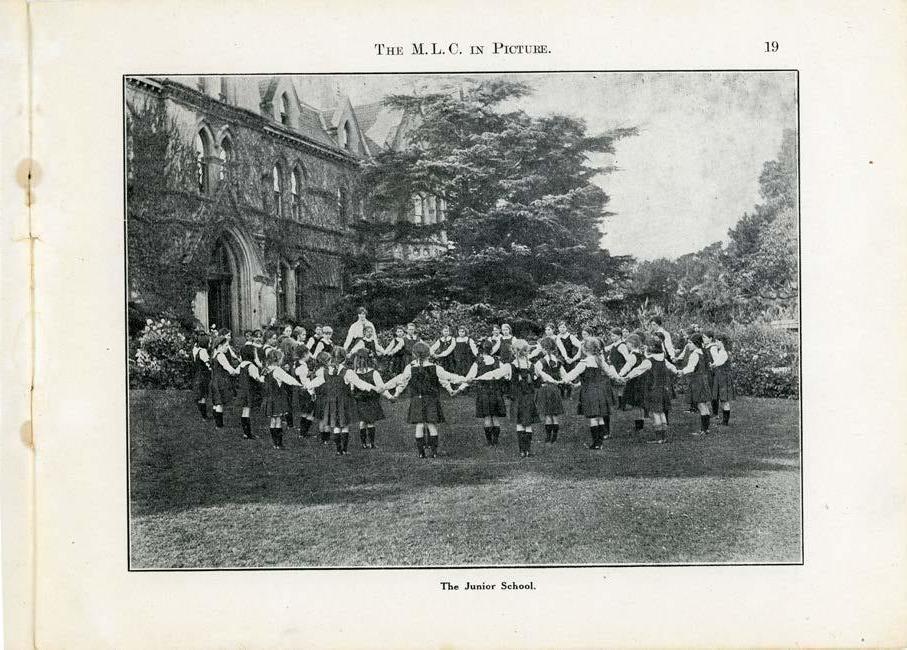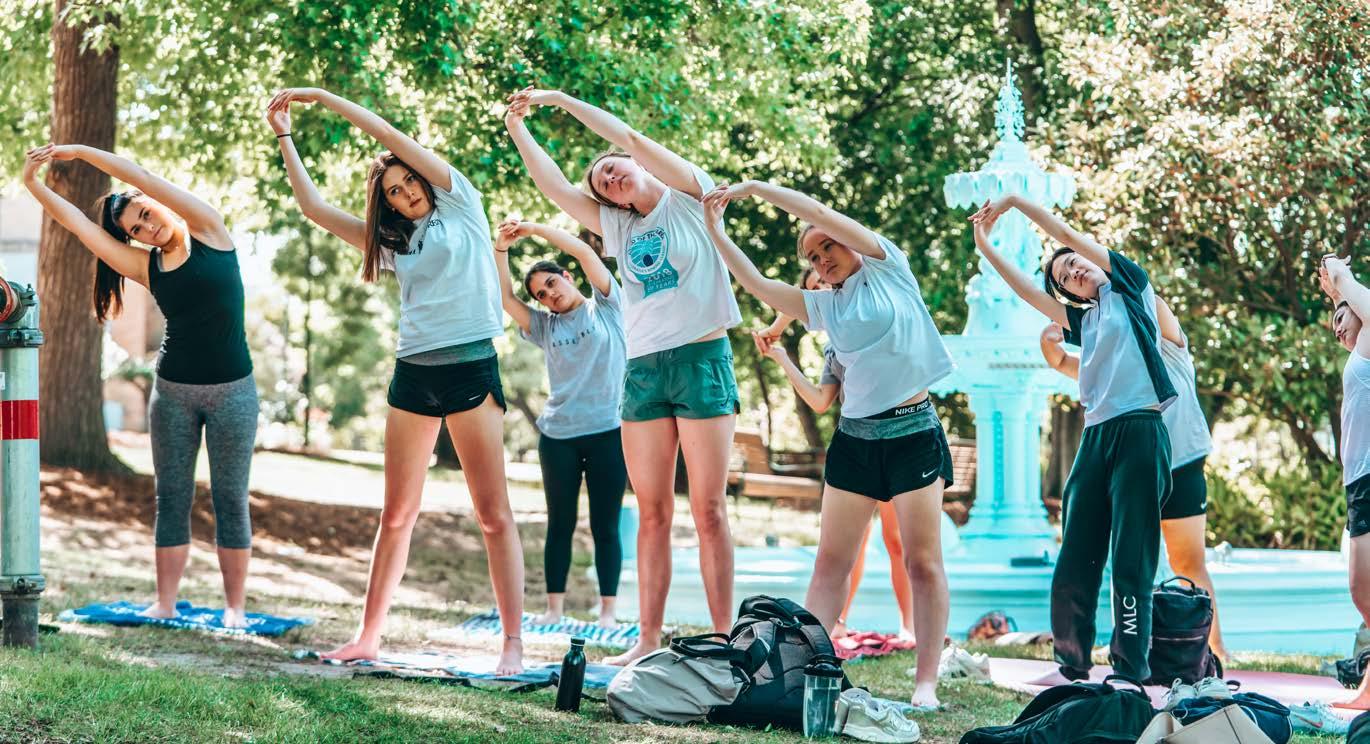11 the Star
A safe space
TO SEEK HELP
An introductory talk in Junior School and at the start of Year 7 ensures all students are aware of MLC’s professional counselling service. In fact, the counselling team gives regular presentations to students throughout their MLC journey on issues such as sleep, anxiety and, more generally, the importance of seeking help. Counselling co-ordinator Anita Hallam says “normalising help seeking” is an important role for her team of four social workers and two psychologists, all highly qualified and experienced.
Director of Learning Support Beth Gerondis with members of the Learning Support staff.
Fostering
WELLBEING THROUGH LEARNING SUPPORT
At MLC we know that learning and wellbeing are intricately linked, and this is reflected in our practice.
We proactively identify and offer learning support to students in Years 7 to 12, based on feedback from subject teachers and regular progressive achievement testing. We also welcome contact from parents, to discuss their daughter’s individual needs. MLC’s Learning Support program is delivered in small groups, with a strong focus on differentiated approaches for each student. Learning Support teachers are part of each school’s Wellbeing Team and meet fortnightly to ensure the needs of each student are being met.
Learning Support teachers discuss learning behaviours directly with students and can support them to understand the effects their additional learning needs can have on their wellbeing and sense of self as a learner. The small group environment of Learning Support classes allows students to share their experiences while feeling safe and secure, which helps them develop a sense of belonging. Students are encouraged to explore their strengths while also understanding any barriers they may have to their learning. At MLC we promote and support student advocacy. Students are encouraged to advocate for themselves, to help their teachers understand how they can provide the best adjustments for them. This can involve providing a platform for students to express what works best for them, for example: “visual images help me understand the work much easier, in contrast to heaps of words.” Our deaf/ hard of hearing students make a video story about themselves, which helps their teachers understand what works for them and what doesn’t. Through Learning Support, we empower students as learners, building positive relationships and creating the right conditions for every student to thrive. Beth Gerondis, Director of Learning Support
“We explain that ‘You’re not the only one, we see a lot of students and can help with a range of issues.’ We want them to know that something can be done. We firstly think together to understand what the issues are, then discuss a plan and work together to reduce their current distress.” One counselling team member is dedicated to the Junior School, providing support for Prep to Year 6 students, while the rest of the team works across Years 7 to 12. “Our role is to help students feel comfortable and safe to talk about their issues in a private and confidential space.” The Counselling team creates a cohesive and collaborative approach to helping students, working with families, staff and, when required, external health services. Class/Home Group teachers, Tutors, House/Year Level co-ordinators, Boarding House Supervisors and Health Centre nurses all play a key role in monitoring student wellbeing. “MLC is amazing in its overall commitment to wellbeing. The safety net around students is very strong because everyone is expected to be a part of wellbeing.” Students can seek help by ‘dropping in’ to the Student Support Services office or sending an email. Teacher referrals are common, supported by regular subschool wellbeing meetings. Parents can also seek support via phone and email. For the remote learning and wellbeing periods during COVID-19, an online referral form was made available on myMLC, encouraging students to ‘selfrefer’ for counselling support. Confidential online appointments were delivered via Microsoft Teams. Anita says the online form was well-used and will remain as a long-term help-seeking option.















